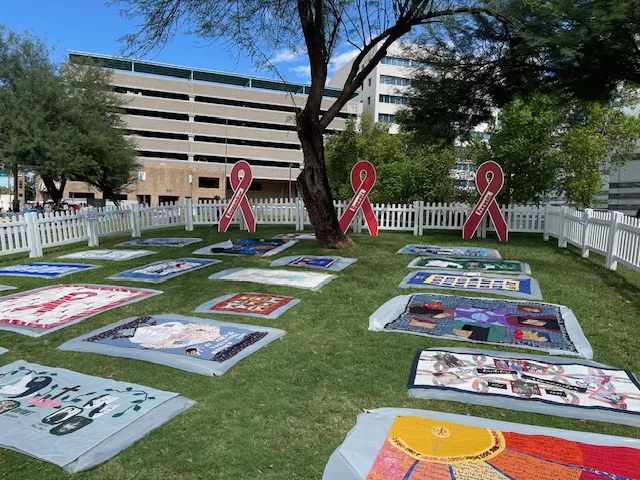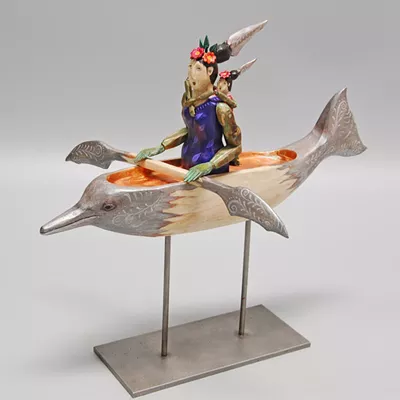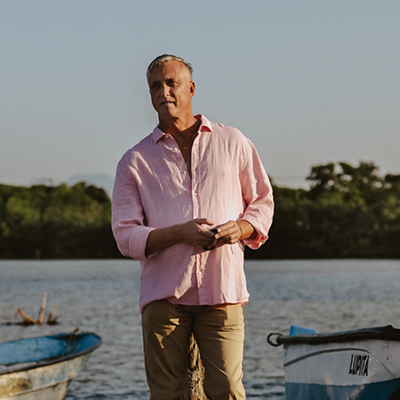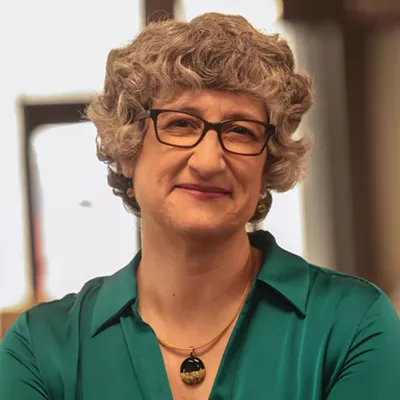
Through the NAMES Project AIDS Memorial Quilt, family members and friends honor those who have died from HIV and AIDS.
The quilt debuted in Washington D.C., in 1987. The piece has grown over the years as panels are created. Locally, the panels are stored by organizations like the Southern Arizona AIDS Foundation (SAAF) in Tucson.
On Friday, Sept. 27, SAAF will host a special AIDS quilt ceremony following AIDSWalk Tucson and the Tucson Pride Parade. Local and those from the NAMES Project will be displayed.
During the ceremony, there will also be food trucks, vendors and free HIV testing at the park.
The Southern Arizona AIDS Foundation also organizes the AIDSWalk and participates in the Tucson Pride Parade, both of which are on Sept. 27.
The following day, at the Tucson Pride Festival, the Southern Arizona AIDS Foundation hosts a reading of the names ceremony.
“We have our quilt openers, which is a mixture of family members, friends, community partners, who help us to open the quilts,” said Monique Vallery, the foundation’s chief development officer.
“During the reading of the names, what happens is the quilts stay closed until we start reading those people’s names. So, it’s really a way to honor our loved ones and to honor the folks that we have lost by saying their names out publicly. We read several hundred names. It’s more than just the names that are on the quilts. All the names that we read have Tucson connections.
“By doing that, we’re raising up their names. We’re letting folks know the people who have lost to HIV and AIDS are never forgotten.”
Vallery said the ceremonies as a whole can be overwhelming.
“That’s the moment where you see the embracing, both of people who know each other and strangers. Especially with families that are with their quilts, you see people really engaging directly with them,” Vallery said.
The Names Project quilt blocks feature the names of local Tucsonans Rick Correa, Steve Mannall and Michael William Koza.
Vallery said the quilts are an important way to spread awareness about HIV and AIDS.
“Because medication has gotten better, and people are truly living with HIV, it’s not like it was in the ’80s and ’90s. We still lose people, and we’re still losing people, but not at the rate that we were at the beginning. I think the quilts are a way to be in the front of the minds of folks in a beautiful and honoring but also heartbreaking way.
“The other part that is important to us is really that remembering and the reading of the names. For so many of those people, especially the folks we lost early on, there was so much stigma, so much shame and so much isolation. So many of those folks died without their family of blood. They died with their family of choice….It’s also a way to honor the folks that were supporting the people,” Vallery said.
The foundation cares for 25 local panels, which were often created by the loved ones of the deceased.
“The quilts are beautiful. Some of them are heartbreaking,” Vallery said.
“They’re all unique. You can sometimes tell older panels that were from the early ‘80s and ‘90s. The quilt panels often just had the person’s first name to protect them. Those were often made by friends because there was oftentimes a lot of shame or stigma.”
Vallery, who has been with the foundation for more than 20 years, said the panels often have personal touches.
“Some of them are true artwork,” Vallery said.
“Some of them have shirts, pictures and items from the person whom they lost. We have a panel that has the program from the person’s funeral service tucked into a pocket… The quilts are something that I take a lot of care and pride for, because these are one a kind. These can never be replaced. These are people in our community. We make sure we are very respectful but also sharing that message about them is important as well.”
Vallery said loved ones can choose to send their panels and try to have them added to the larger AIDS Quilt or can keep them stored locally in Tucson.
“A lot of folks want to keep them here in Tucson, so we have cared for them,” Vallery said.
“There are so many times when I can remember when we’ve had them on display where people have come up, and they were actual family members to the loved one on the quilt, and they didn’t know they had a quilt… Every time we’ve had that encounter, I’ve worked with the family to allow them to borrow the quilt or be able to come in and see it but have their time with it.”
Vallery said that when the panels aren’t on display, they’re carefully and safely stored.
“Some of these quilts are 30-plus years old,” Vallery said.
“If we need the bunting fixed or sometimes even parts of the quilts are starting to get loose or fall off, we have an amazing group of folks that help us to make sure we are honoring and preserving the quilts because again these aren’t replaceable.”
Vallery said when they are displaying the panels, they also take special care with them.
“We created a plastic covering for them so that when we display them, they quilts are never touching the ground. They are either hung up or on the tarps to keep them as clean as possible,” Vallery said.
AIDS Quilt Ceremony
WHEN: 7:30 p.m. Friday, Sept. 27
WHERE: Armory Park, Tucson
COST: Free
INFO: saaf.org










